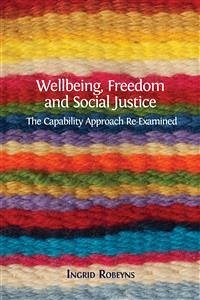How do we evaluate ambiguous concepts such as wellbeing, freedom, and social justice? How do we develop policies that offer everyone the best chance to achieve what they want from life? The capability approach, a theoretical framework pioneered by the philosopher and economist Amartya Sen in the 1980s, has become an increasingly influential way to think about these issues.Wellbeing, Freedom and Social Justice: The Capability Approach Re-Examined is both an introduction to the capability approach and a thorough evaluation of the challenges and disputes that have engrossed the scholars who have developed it. Ingrid Robeyns offers her own illuminating and rigorously interdisciplinary interpretation, arguing that by appreciating the distinction between the general capability approach and more specific capability theories or applications we can create a powerful and flexible tool for use in a variety of academic disciplines and fields of policymaking.This book provides an original and comprehensive account that will appeal to scholars of the capability approach, new readers looking for an interdisciplinary introduction, and those interested in theories of justice, human rights, basic needs, and the human development approach.
Bitte wählen Sie Ihr Anliegen aus.
Rechnungen
Retourenschein anfordern
Bestellstatus
Storno









